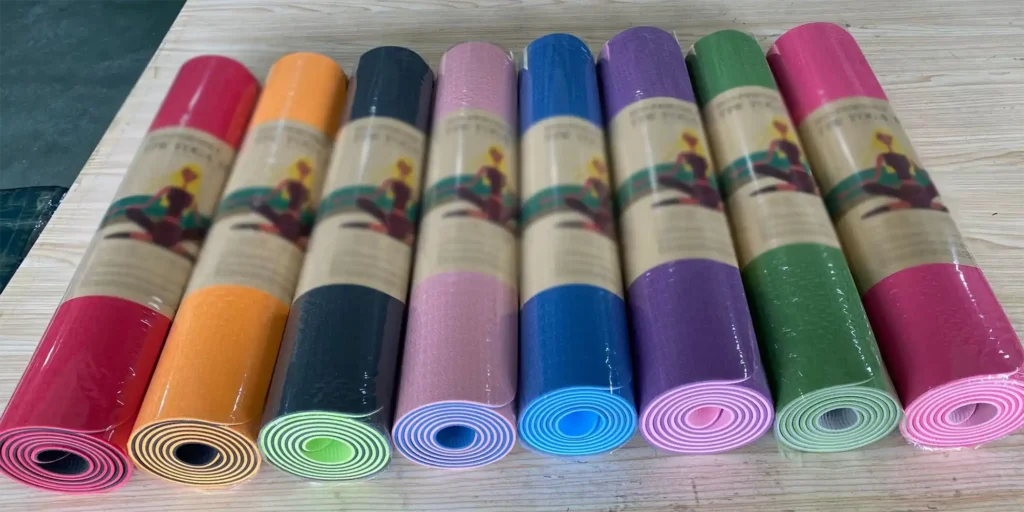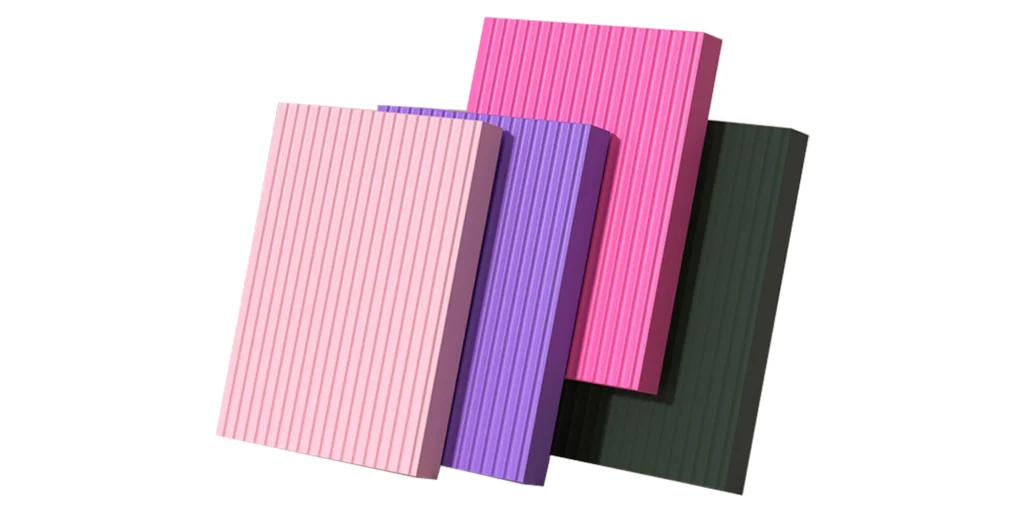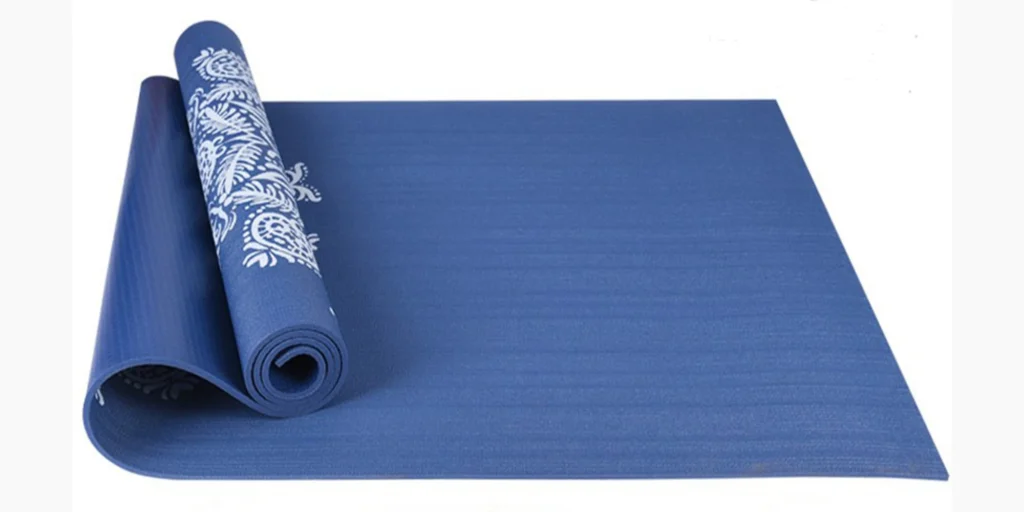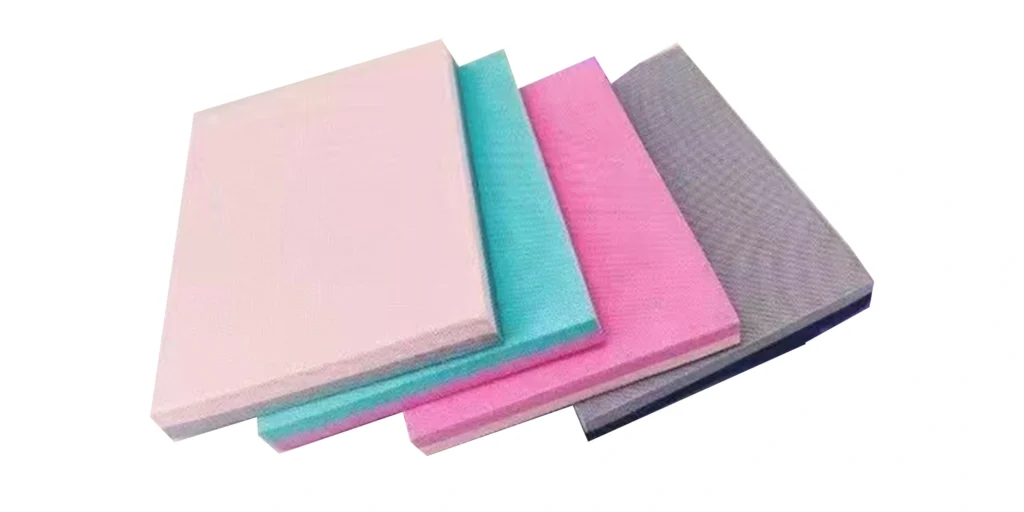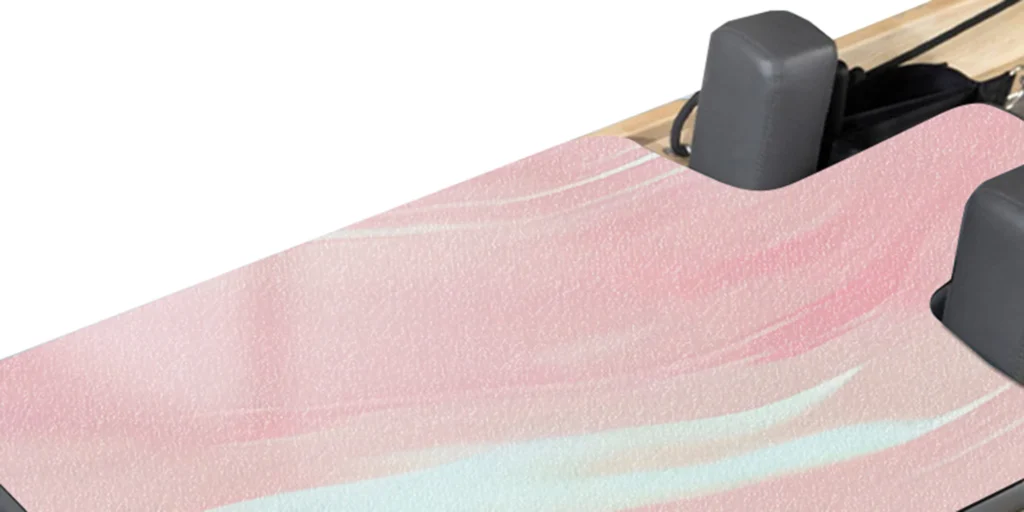Thermoplastic Elastomer (TPE) foam mats are becoming increasingly popular in a wide range of industries, from fitness and sports to children’s play areas and even in industrial settings. These versatile mats offer a unique combination of softness, durability, and flexibility, making them a go-to choice for both commercial and personal use. One of the standout features of TPE foam mats is the wide array of customization options available, allowing manufacturers to meet specific customer needs while also differentiating their products in a competitive market. In this article, we will explore the various customization options for TPE foam mats, including colors, textures, thicknesses, and how manufacturers can tailor their products to suit specific customer demands.
Why TPE Foam Mats are So Popular
Before diving into the customization aspects, let’s first understand why TPE foam mats are so highly sought after. TPE is a non-toxic, environmentally friendly material that provides excellent cushioning and shock absorption. These mats are often used for activities such as yoga, exercise, flooring solutions, and even as protective mats in industrial environments. The ability to customize these mats allows manufacturers to offer products that cater to different consumer preferences, aesthetics, and functional needs.
1. Color Options: Vibrant, Neutral, or Custom Shades
One of the most popular customization options for TPE foam mats is color. Color is a powerful tool in product design, affecting both the aesthetic appeal and the psychological impact of a product. Manufacturers can offer a wide range of color options, from vibrant hues that stand out in fitness or play areas to neutral tones that blend seamlessly into home or office spaces.
Vibrant Colors for Commercial Use
Bright, eye-catching colors such as red, blue, and green are perfect for commercial spaces like gyms, daycare centers, or sports facilities. These colors are not only visually appealing but can also add an energetic vibe to the space.
Subtle and Neutral Colors for Residential Use
For residential settings, subtle colors such as gray, beige, and black are preferred. These tones blend easily with various home décor styles and are less likely to show dirt or stains.
Custom Color Options for Branding
Some customers, especially those in the corporate or retail sectors, may require custom colors to match their brand identity. By offering color-matching services, manufacturers can create TPE foam mats that align with a company’s logo, branding, or overall aesthetic.
2. Textures and Surface Patterns: Enhancing Functionality and Appeal
The texture of a TPE foam mat is a key element in both its functionality and visual appeal. The right texture can enhance the grip and safety of the mat, making it ideal for activities such as yoga, Pilates, or high-impact exercises.
Smooth Surface for Comfort and Ease of Use
Smooth-textured mats are often preferred for activities that require comfort and ease of movement, such as yoga or stretching exercises. A smooth surface provides a more comfortable feel underfoot while maintaining stability for postures or exercises that demand balance.
Anti-Slip Textures for Safety
For high-intensity workouts or environments where safety is a top priority (e.g., gyms, sports courts), anti-slip textures are essential. Manufacturers can incorporate raised patterns or grooves on the surface of the mats to provide better traction and prevent slipping, even during sweaty or fast-paced activities.
Custom Embossing and Branding
Some customers may also want unique surface patterns or branding on their mats. Manufacturers can offer custom embossing services to add logos, patterns, or designs directly onto the mat’s surface. This is particularly appealing for businesses looking to add a personalized touch to their products.
3. Thickness Options: Balancing Comfort and Durability
The thickness of a TPE foam mat plays a crucial role in its comfort, durability, and application suitability. Depending on the intended use, customers may require mats of varying thicknesses.
Thin Mats for Flexibility and Portability
Thin mats (around 4mm to 6mm thick) are ideal for customers who need a lightweight and portable solution. These mats are commonly used for yoga, travel, and general exercise routines where portability and ease of storage are key factors.
Medium Thickness Mats for Versatile Use
Mats with a thickness of 8mm to 10mm offer a good balance between comfort and portability. These mats are suitable for activities like Pilates, light aerobics, or as flooring in children’s playrooms.
Thick Mats for Extra Cushioning
Thicker mats (12mm and above) provide more cushioning, making them perfect for high-impact activities, heavy lifting, or industrial applications. These mats are also ideal for soundproofing or insulating purposes in certain commercial or residential settings.
Tailored Thickness for Specific Needs
By offering customization in thickness, manufacturers can cater to a wider range of customer preferences, whether they are looking for something ultra-thin for flexibility or ultra-thick for protection.
4. Size and Shape Customization: Tailoring to the Space
The ability to customize the size and shape of TPE foam mats is another key benefit that manufacturers can offer their customers. Whether the mats need to fit into a specific space or accommodate a particular use case, offering flexibility in size can make all the difference.
Custom Sizes for Unique Spaces
For customers who need mats to fit into a specific area (such as a gym, dance studio, or home workout space), custom sizes can be a valuable option. This ensures that the mat fits perfectly, reducing the need for cutting or adjustment and creating a seamless appearance.
Puzzle or Interlocking Mats
Interlocking or puzzle-style mats are another popular option. These mats can be easily connected to create larger areas without the need for adhesives, offering flexibility in layout. They are especially popular in play areas, gyms, and trade shows, as they allow for quick assembly and disassembly.
5. Eco-Friendly Customization: Sustainable and Safe Options
Sustainability is becoming increasingly important in consumer purchasing decisions, and TPE foam mats are an excellent choice for eco-conscious consumers. TPE is a recyclable material, making it an environmentally friendly alternative to PVC mats. Manufacturers can also offer customization options that cater to sustainability needs, such as:
- Recycled TPE Materials: Offering mats made from recycled TPE or incorporating recycled content into new mats can appeal to customers who are focused on reducing their environmental footprint.
- Non-toxic Materials: Customers looking for non-toxic, safe products for children or pets can benefit from the natural properties of TPE, which is free from harmful chemicals like phthalates or PVC.
Customization is one of the main factors that set TPE foam mats apart from other types of flooring and exercise mats on the market. By offering a range of options for color, texture, thickness, size, and eco-friendliness, manufacturers can create products that meet the specific needs of their customers. Whether it’s a gym looking for durable, anti-slip mats or a homeowner wanting a soft, neutral-toned mat for yoga, the ability to tailor TPE foam mats ensures that both function and style are met in equal measure.
With the growing demand for personalized products across industries, TPE foam mats offer manufacturers the perfect opportunity to differentiate themselves in a competitive market. As customer needs evolve, the ability to offer diverse customization options will continue to be a valuable selling point, allowing companies to stay ahead of the curve and deliver products that truly stand out.
FAQ: Customization and Design Options for TPE Foam Mats
1. What are TPE foam mats and why are they popular?
TPE foam mats are made from thermoplastic elastomer, a flexible and durable material that combines the benefits of rubber and plastic. They are popular due to their non-toxic, eco-friendly properties, excellent cushioning, and shock absorption, making them ideal for a wide range of applications like fitness, children’s play areas, and industrial flooring.
2. What customization options are available for TPE foam mats?
TPE foam mats can be customized in various ways, including color, texture, thickness, size, and shape. Manufacturers can also offer options for unique surface patterns, branding, and eco-friendly materials, ensuring that mats meet the specific needs of customers across different industries.
3. Can I customize the thickness of TPE foam mats?
Yes, TPE foam mats are available in a range of thicknesses, from thin mats (4mm to 6mm) for portability to thicker mats (12mm or more) for added cushioning and support. Custom thickness options can be tailored to suit the specific use case, whether for light exercises or high-impact activities.
4. Are TPE foam mats available in eco-friendly options?
Absolutely! TPE foam mats are an environmentally friendly choice, as TPE is recyclable and free from harmful chemicals like PVC and phthalates. Manufacturers can also offer mats made from recycled TPE materials to cater to eco-conscious consumers.
5. Can TPE foam mats be customized for branding purposes?
Yes, TPE foam mats can be customized with logos, patterns, or embossing to match branding requirements. This option is ideal for businesses looking to incorporate their brand identity into their products, whether for promotional purposes or to align with their corporate aesthetics.
#TPEFoamMats #CustomFoamMats #EcoFriendlyProducts #MatCustomization #FitnessMats #HomeDecor #YogaMats #NonToxicMaterials #RecyclableMats #BrandingOptions #SustainableLiving #FlooringSolutions #WellnessProducts #TPEfoam #FoamMatDesign
WELLE Trade has over 20 years of experience in the production and processing of PE/EVA/TPE foams, so you may want to consult with them if you have any sourcing needs.
